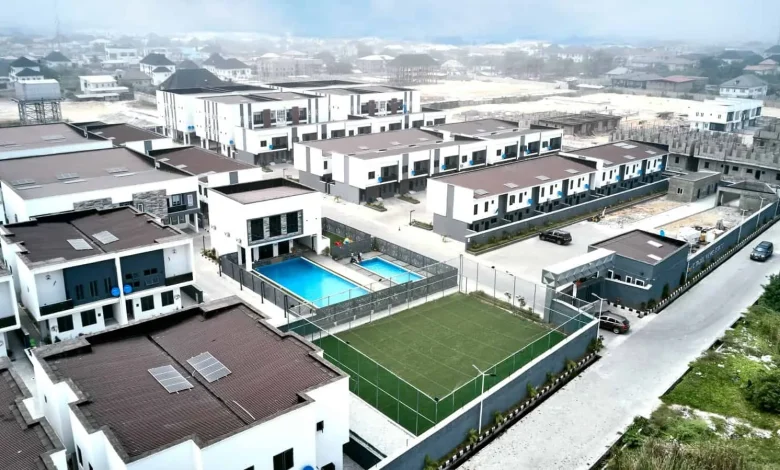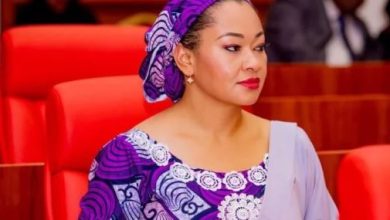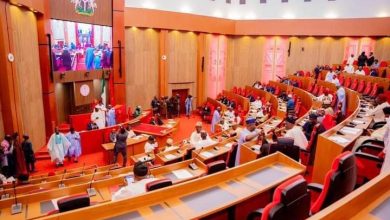Real Estate Now Third in Nigeria’s GDP, Surpasses Oil & Gas as Key Economic Driver

In a major shift in Nigeria’s economic landscape, real estate has now surpassed oil and gas to become the country’s third-largest sector, according to the latest data from the ongoing GDP and CPI rebasing process.
This re-basing exercise, which updates the country’s economic data to reflect the changing times, shows that crop production has now overtaken agriculture to become the country’s second-largest industry. While agriculture as a whole—comprising livestock, forestry, and fishing—contributed 28.65% to Nigeria’s GDP in the third quarter of 2024, the crop production sector is steadily gaining ground.
Telecommunications, previously categorized under information and communication, is now recognized as a separate sector and ranks fourth in GDP contribution, helping to reshape Nigeria’s economic structure. In total, information and communication contributed 16.35% to the GDP in Q3 2024.

The trade sector, another key player, is now Nigeria’s second-largest contributor to the economy, accounting for 14.78% of GDP.
Despite challenges such as declining purchasing power, Nigeria’s real estate sector continues to grow at an impressive pace. The sector expanded by 46.52% in nominal terms in Q3 2024, a significant increase from the previous year.
READ ALSO: Unlocking Africa’s Real Estate potential: Why skill development is key!
Real estate accounted for 5.43% of real GDP in the third quarter of 2024, even though this was slightly lower than the 5.58% contribution in the same period of 2023.
The demand for housing in Nigeria remains strong, driven by a significant housing deficit. Experts estimate the country needs around 700,000 new homes each year to bridge the gap, which is currently estimated at 28 million units. Despite the challenges, the sector is projected to be worth $2.61 trillion by 2025, with residential real estate leading the way.
According to Statista, the real estate market in Nigeria is expected to grow at a compound annual growth rate (CAGR) of 6.91%, reaching $3.41 trillion by 2029.
In comparison, the U.S. real estate market is projected to generate $136.6 trillion in 2025, showcasing the vast potential of Nigeria’s real estate industry.

The National Bureau of Statistics (NBS) has been re-basing Nigeria’s GDP and CPI, a process that updates the country’s economic figures to reflect changing realities.
The last re-basing in 2014 led to a significant increase in Nigeria’s GDP, making it the largest economy in Africa at the time.
This most recent re-basing, which incorporates data from 2019, now includes emerging sectors like the digital economy and national health insurance schemes. Moses Waniko, a technical assistant to the statistician general, emphasized that re-basing ensures that economic indicators are more accurate, providing a clearer picture of the economy for better planning and policy-making.
“Rebasing is essential for ensuring that our economic indicators reflect current realities.
It gives us a more accurate understanding of the structure of our economy, which is crucial for making informed decisions,” said Adeyemi Adeniran, the statistician general of the federation.
Tayo Aduloju, CEO of the Nigerian Economic Summit Group (NESG), compared GDP re-basing to cleaning the lens through which we view the economy. Without this process, we risk misunderstanding Nigeria’s true economic capacity.
The updated GDP data will be a valuable tool for businesses, particularly in the private sector, as they look to plan and grow in a changing economy.
Muda Yusuf, CEO of the Centre for the Promotion of Private Enterprise (CPPE), pointed out that some sectors crucial for economic growth are still underperforming, which could give an incomplete picture of the overall economy.
As Nigeria moves forward, the re-basing of the GDP will help shape the country’s economic future and guide policy decisions.
With real estate now playing a larger role, the sector is well-positioned to lead Nigeria’s economic growth in the years ahead.





